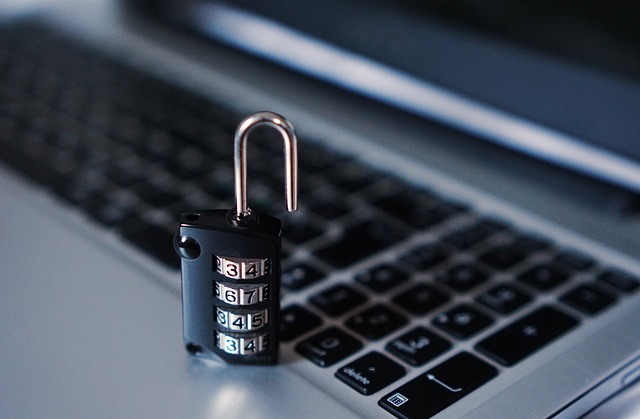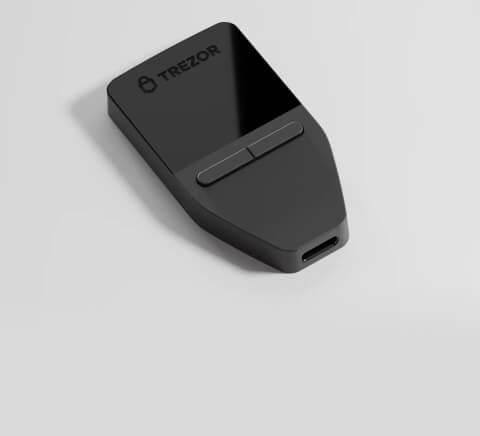Hot vs Cold Wallet: An Introduction
Good day dear reader! In this article, we will talk about the concepts of hot and cold wallets, their definitions, and how they work. We’ll also compare their security features, and provide you with a practical guide for choosing the right solution for you. By the end of this blog, you’ll have a clear understanding of both kinds of wallets.
Cryptocurrencies have gained enormous popularity in recent years, with more and more people like you and me investing in them. They participate in various crypto-related activities like trading, hodling, decentralized finance (DeFi), and non-fungible tokens (NFTs). To engage in these activities, you’ll need a crypto wallet to manage and store your digital assets.
However, the world of crypto wallets can be a confusing maze, especially for newbies. One of the most important decisions you need to make is the choice between a hot and a cold wallet, or if you want to use both. Both options have their own pros and cons. Keep on reading and learn the differences between them.

What are Hot and Cold Wallets?
Hot wallets and cold wallets are two primary types of crypto wallets. While you can store and manage your cryptos with both, they differ quite clearly in terms of convenience and security:
Hot Wallets – From MetaMask to the Coinbase-Wallet

A hot wallet or online wallet, is a digital storage solution that is always connected to the internet and allows you to store and access your private keys for crypto transactions on exchange platforms or in your browser with apps such as MetaMask.
It allows you to swiflty access, manage, and transfer your coins and tokens on the go. Hot wallets also often come as mobile or desktop applications, offering you convenience and ease of use.
However, due to their online nature, hot wallets are generally more vulnerable to security breaches, hacking and phishing attacks than their hardware counterparts. It is strongly advised that you take additional security measures when dealing with this kind of crypto storage. Always use strong passwords and enable two-factor authentication to protect your cryptos from cyber criminals.
A Secure Vault For Your Bitcoins: Cold Wallets
Cold wallets, on the other hand, are physical storage devices that store private keys offline and you have full control over them. Greater security is their main advantage, as they are not connected to the internet and are only connected to your desktop, tablet or mobile phone when needed. These devices provide a higher level of protection against cyber threats and are therefore a safe bet for long-term storage of your cryptocurrencies.
Look out for tried and tested brands such as Trezor, Ellipal or Ledger and perhaps study a few cold wallet reviews before you buy.

In a NutShell: The Pros and Cons of Hot and Cold Wallets
Hot Pros
Hot wallets offer their unique benefits that make them a popular choice among many crypto owners and traders:
- Ease of use: User-friendly interfaces allow you to send, receive and trade fast.
- Quick access to your funds: They’re a great choice for daily spending and small transactions.
- Out-of-the-box solution: Many hot wallets provide a seamless integration for popular crypto platforms and exchanges, so you can access a wide range of services easily.
- Mobile wallets for on-the-go transactions: Conveniently manage your crypto assets anytime and anywhere with hot wallets designed for mobile devices.
Hot Cons
While hot wallets are a trader’s (or shopper’s) best friend, users should also be aware of the potential security risks they can pose. As stated above, always implement additional security measures.
- Security risks: They are more susceptible to hacking, phishing attacks, and malicious or faulty smart contracts, compared to cold storage devices.
- Potential for loss: If a hot wallet is compromised, you may risk losing your crypto coins and not realize it until it’s too late.
- You need a connection to the internet to be able to manage your cryptos. The online wallet relies on the internet to validate your account and retrieve the current state of the blockchain.
Remember: Minimize the risks. We recommend you to stay vigilant, always keep your online storage updated with the latest security patches, and follow best practices for online security.
Cold Pros
Cold wallets are cool. Especially, if you’re a hodler who wants to store and secure your crypto assets on the long run:
- Improved security: Cold wallets currently offer the highest level of security by storing private keys offline, away from potential online threats.
- A powerful shield against hacking and phishing attacks: Unlike their hot counterparts, hardware storage solutions are not permanently connected to the internet. Hackers and phishers have a hard time targeting your Bitcoins and co.
- Offline transaction signing: Sign transactions offline and take advantage of this additional layer of protection against cyber attacks.
Cold Cons
While cold storage products let you sleep at night with a clear conscience, they also have certain limitations:
- Less convenience: Cold storage often requires additional steps or procedures to access and manage crypto assets, they are therefore less suitable for frequent transactions.
- Physical damage and loss: Cold wallets are physical devices that can be lost, damaged, or stolen. However, you can always recover your cryptocurrencies, as long as you have your recovery phrase.
- Limited accessibility: To be able to access your cryptos, you must have your storage device with you. A clear minus in terms of flexibility.
- Care is key: you and only you are responsible for the safe storage of your device, your PIN and your recovery phrase. It is important to avoid damage or loss.
Security Features Compared

Security is probably the most critical aspect to consider when choosing a crypto wallet. Both storage methods have their own respective security measures in place:
Security Measurements in Hot Wallets
Hot wallets typically implement a combination of security measures such as two-factor authentication, secure passwords, and encryption to protect users’ private keys and prevent unauthorized access. These wallets strongly rely on the security practices of the crypto platforms or apps they are integrated with. Let’s examine them:
- Two-factor authentication (2FA): Online wallets often require users to enable 2FA by requiring a second form of verification, such as a code sent to a mobile device or your e-mail address.
- Strong passwords: Users are encouraged to create strong, unique passwords with letters, numbers and special characters to prevent unauthorized access.
- Encryption: Different encryption protocols are used to protect your private key and other sensitive information.
- Security updates: Security updates and patches are regularly released (or should be!). They are important to address any potential vulnerabilities or bugs.
Security Protocols for Cold Wallets
As we now know, hardware storage is king when it comes to security aspects:
- Seed phrase: Cold wallets typically generate a recovery- or seed phrase, which is a set of randomly generated words that serve as a backup to recover private keys. This seed phrase should be securely stored in a vault or a secret place. Never lose it!
- Offline storage: Good products store private keys offline in a secure element. This is basically a tamper-proof chip that isolates the private key completely.
- Physical security: Enhance the security by storing your wallet in a safe place separate from your seed phrase, such as safety deposit box, a vault or even buried in your garden behind the lovely rose bushes. The choice is yours, just don’t tell anyone.
- Multi-signature functionality and deep cold storage: Some advanced cold wallets support multi-signature transactions, where multiple private keys are required to authorize a transaction as an additional, high-security measurement.
- Firmware: Always make sure to have the firmware of your device updated with the latest release.
Ledger, Trust or Trezor? A Selection of Popular Wallets
- Trust Wallet: Trust is a popular hot wallet known for its seamless integration with various crypto platforms. It allows you a secure and intuitive user experience, making it a fabulous choice for many crypto fans. Trust also provides support for many decentralized applications (dApps) and non-fungible tokens (NFTs). Why not join and explore the growing DeFi ecosystem?
- Coinbase Wallet: It was developed by the crypto exchange Coinbase – a leading player among the many crypto exchanges. Here you’ll find a wide range of features, including support for multiple cryptocurrencies, a dApp browser, and biometric authentication. You can also connect your bank account from major institutions, providing a convenient gateway for managing your coins.
- Ledger Nano S Plus: Ledger is a big name when it comes to hardware wallets. Their devices are well known for their use of secure element technology. In April 2022, Ledger released an upgrade to their popular beginner wallet, the Nano S (discontinued). The new Nano S Plus boasts a sharper display, tons of more storage space, a lot of new cryptocurrencies and tokens, and last but not least a modern USB-C port, among various additional features.
- Trezor Model T: The Model T is a popular product from Trezor, another leading company located in Prague, Czech Republic. The Model T that has not reported any major security breaches until now and stands out with it’s touchscreen, top-notch security and an easy setup process.

Practical Tips When Selecting a Storage Type For Your Cryptocurrencies
Still not sure if you want to go hot or cold (or both)? Read on to get a clearer picture:
When to Use a Hot Wallet
- Daily spending: If you frequently use cryptocurrencies for daily transactions or online shopping, a hot wallet provides the convenience you need.
- Day trading: If you only hold smaller amounts of cryptocurrency for crypto trading.
- Crypo exchanges: If you prefer the ease of use and integration with various crypto platforms, a hot wallet is right for you.
Good Reasons for Cold Wallets
Cold Storage is your thing if you focus on security and long-term storage:
- Large amounts of cryptocurrency: If you hold significant amounts of cryptos, a cold wallet provides the highest level of security and protection against online threats.
- Long-term storage: If you plan to hold your assets for an extended period, these devices offer a reliable solution.
- Peace of mind: If you want full control and ownership of your private keys, a cold wallet gives you the assurance that your crypto assets are safe and secure.
Future Trends in Crypto Storage Technology
The technology surrounding crypto storage evolves with new trends in the crypto industry, such as:
- Smart contracts: Wallets may integrate smart contract functionality, allowing you to interact directly with decentralized applications and execute complex transactions.
- Blockchain technology advancements: Wallets may leverage advancements in blockchain technology, like improved scalability and privacy features.
- Digital assets innovation: Wallets may adapt to new types of digital assets. Tokenized real estate or art are some examples. This allows you more diverse storage options.
Stay updated with future trends, so you may choose the right wallet type and adapt to the ever-changing crypto landscape.
Innovations in Hot and Cold Wallets
Hot wallets are continuously evolving to meet the needs of crypto fans:
- Biometric security: Hot wallets like Exodus integrate biometric authentication, such as fingerprint or facial recognition for improved security, streamlinging the authentication process.
- Multi-signature functionality: Access to multi-signature functionality. If selected, you’ll be using multiple private key signatures to authorize your transactions.
- Decentralized finance (DeFi): The integration with various DeFi platforms makes it possible to interact with decentralized applications, lending platforms, and yield farming opportunities.
- Multi-party computation (MPC): Some cold wallets can leverage multi-party computation technology. This enables secure and distributed key management. Multi-party computation allows multiple parties to jointly calculate something without revealing their own private data. Here’s a simple example: Imagine you and a few friends (let’s call them Wanda, Walter and Wally) all have secret salary information. Using MPC, they could all work together to find out who has the highest salary, without any of them ever having to disclose their actual salaries to each other.
Hot vs Cold Wallet – Conclusion
Let’s sum it up: Hot wallets offer convenience but at the expense of security, while cold storage devices prioritize safety over accessibility. Weigh the pros and cons of each for your personal needs, or use both as a hybrid-solution. As storage technologies evolve, staying abreast of innovations and best practices will be very important in the dynamic landscape of crypto storage.
Frequently Asked Questions
Can Hot Wallets be Made as Secure as Cold Wallets?
No. They can’t provide the same level of security as cold wallets. However, certain security improvements, such as two-factor authentication and secure password management, can significantly help to mitigate this disadvantage.
Is There a Way to Combine the Security of Cold Storage With the Convenience of Hot Wallets?
Some newer hardware wallets offer Bluetooth connectivity for transaction signing. This allows for a more streamlined process compared to traditional cold wallets (where you might need a cable connection). The private keys never leave the secure hardware wallet itself, but the Bluetooth connection provides an elegant way to interact with the signing process on your phone.
Hot vs Cold Wallet: Which One do I Choose?
The choice depends on several factors, including your personal usage patterns, security concerns, the value of your crypto assets, and the purpose of the product. Consider your specific needs and risk tolerance when making this decision.
